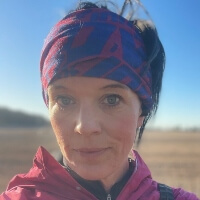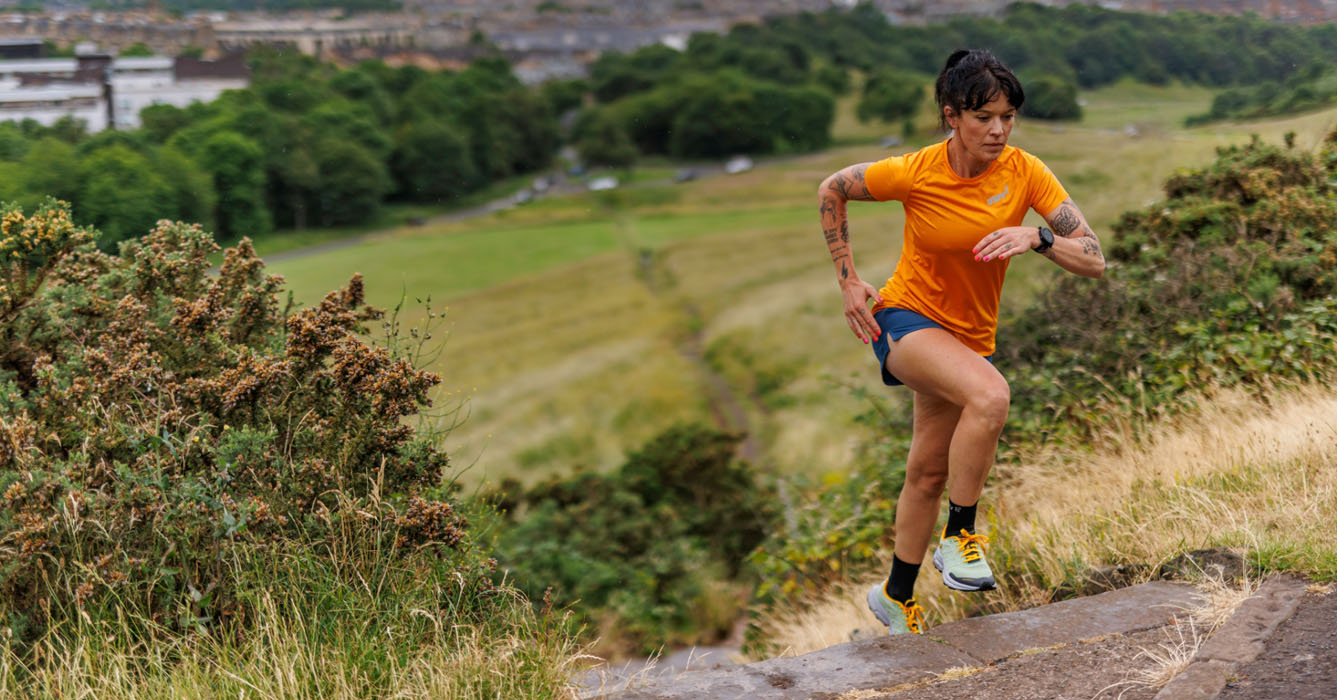
If you think that an ultrarunner can’t also be a high functioning alcoholic, think again. Allie Bailey is an INOV8 athlete who has battled alcoholism all of her adult life. In this honest, brave and inspirational blog, she tells her story. If you want to read more about Allie, pre order her new book, There Is No Wall – available from 1 February.
For almost 25 years I was a functioning alcoholic. I drank pretty much every single day. And not just a pint at lunchtime. We are talking bottles and bottles of wine, beer, whatever was there.
I was drinking to the point of blackout at least once a week, yet I still managed to hold down careers in the music industry and outdoors, to start my own business, to become an INOV8 ambassador, to win a number of ultramarathons and to claim world firsts running across jungles, deserts and frozen lakes. We walk freely among you, us addicts. Maybe you’re one. Maybe your partner, son or daughter is. We are everywhere. You just don’t see us. You don’t want to think we could be just like you. But we are.
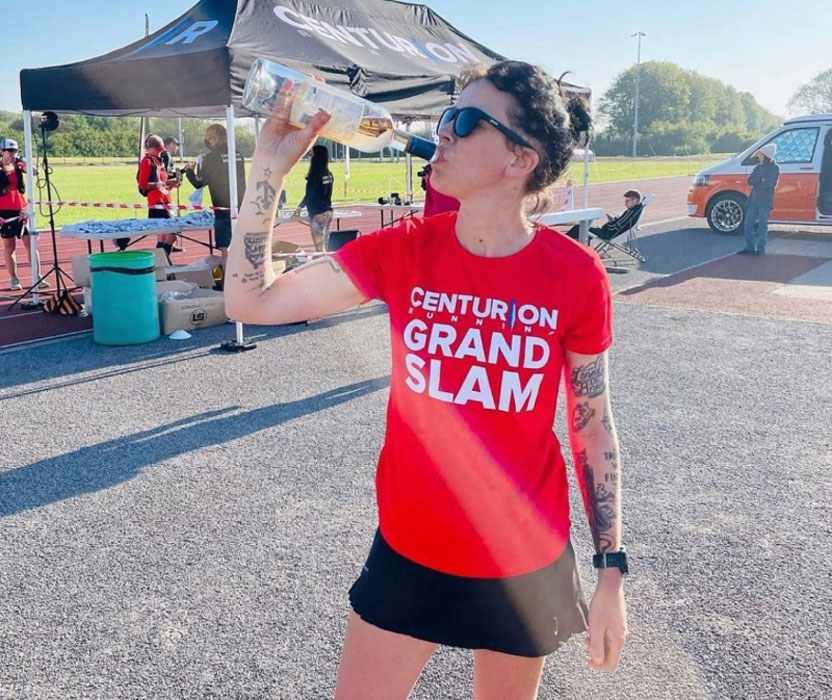
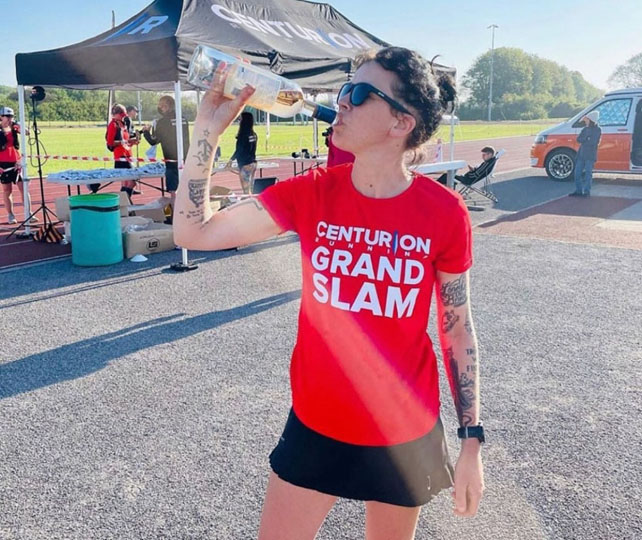
STARTING DRINKING
Like most children of the 80s and 90s I started drinking at home where it was not only socially acceptable, but the done thing – drinking was synonymous with fun, relaxing and having a good time. I had always felt like the odd one out, like maybe I wasn’t as good as my brothers and sisters or the people I went to school with, but I found that I could block this feeling out when I’d had a couple of drinks. So I did. And the more drinks I had, the more likeable I felt like I became. And the quieter those voices were.
I fought depression, anxiety and total lack of self-confidence using alcohol. And I did it for years and years and years because it was easy, it was accessible, and it was socially acceptable. The irony was that I was actually making myself worse. The anxiety, paranoia and extreme low mood that came with being hungover almost all the time just exacerbated my depression. And that obviously made me drink more. To take the edge off. It’s a cycle that so many people get caught up in – and it is accompanied by feelings of shame and fear.
Let me tell you right here, right now that there is no shame in being addicted to something that is not only highly addictive, but is marketed at you as the normal thing to do. That is what alcohol is. The companies that make it want you to get addicted and stay addicted. But not TOO addicted. Drink responsibly etc. It’s your fault if you drink too much, not theirs.
Alcohol is the only addictive substance that society will try and force on you against your will. It is the only addictive substance that people think you are odd, weird or broken if you don’t take. When you think about it, that is absolutely mental.
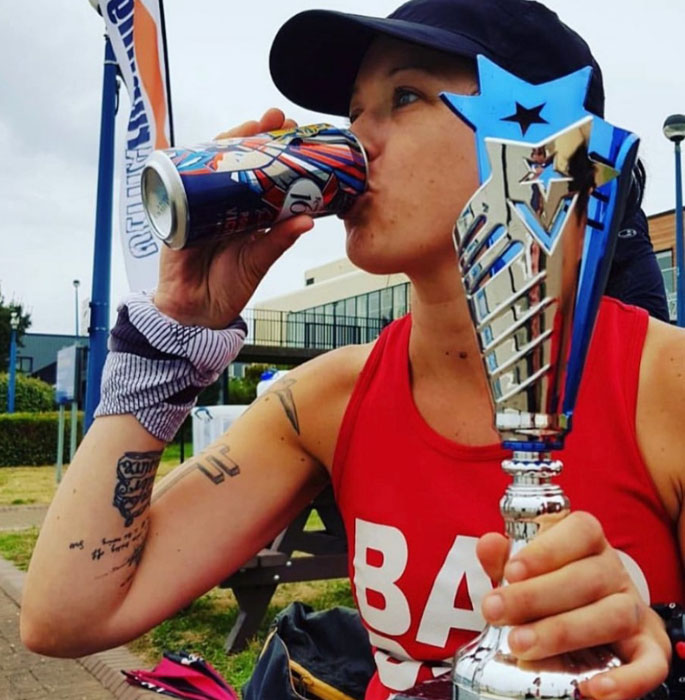
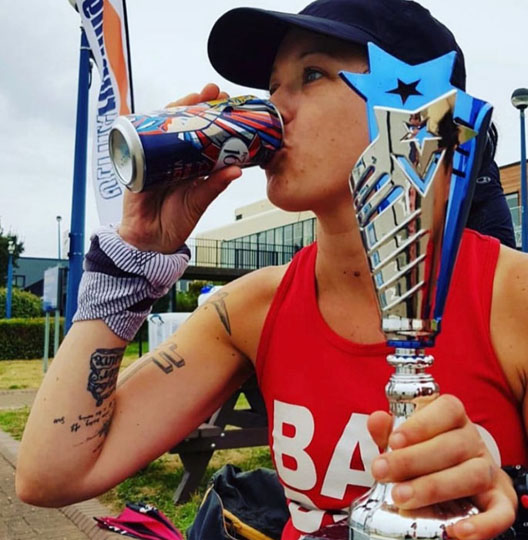
RUNNING DIDN’T SAVE ME
When I started running, it was to try and cure my depression – a last ditch attempt at feeling better. I started with London Marathon. I trained by the book – no booze for 40 days, no smoking, just running from a plan sent by the Runners World Gods. Literally doing it by the book. I thought something magic would happen when I crossed that finish line on the Mall. But it didn’t. For about two minutes I felt that high you get when you accomplish something like that for the first time, but very soon afterwards I realised that actually, I felt exactly the same. In fact, I felt worse. I beat myself up for not getting the arbitrary time I’d had in mind and I got absolutely hammered as soon as I crossed the finish line.
The training had given me focus and it had made me feel better while I was doing it. It was the process that I had loved. The actual doing of the thing had given me nothing. But still I chased that imaginary happy place that people, books, magazines and the internet promised me running would bring. Running will save you. Just keep doing it.
In a lot of ways running made me worse. I chased bigger and bigger distance goals. I found trail and ultrarunning – they were way more social than road running and people liked a pint after a race. People would think I just went for a pint with them – but I would go for a pint with EVERYONE. My alcoholism was hiding in plain sight. People thought I was cool because I like a drink and a cigarette yet could still run 100 milers. I referred to it as my “USP”. But I was falling apart.
The only time I felt OK was when I was out doing the training or the event – when I could hit the flow state of just being – usually numbed by the night before. That was where I got the little sparks of thought that told me maybe I needed to change something. I didn’t listen. I didn’t listen until it was too late.
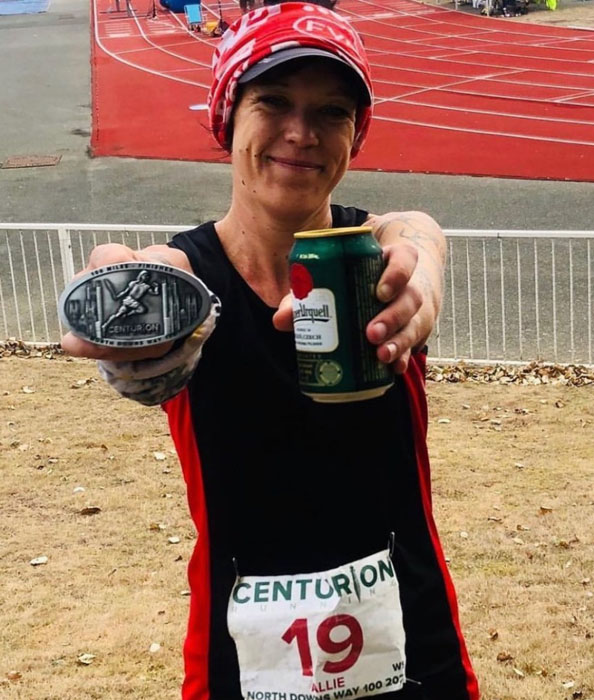
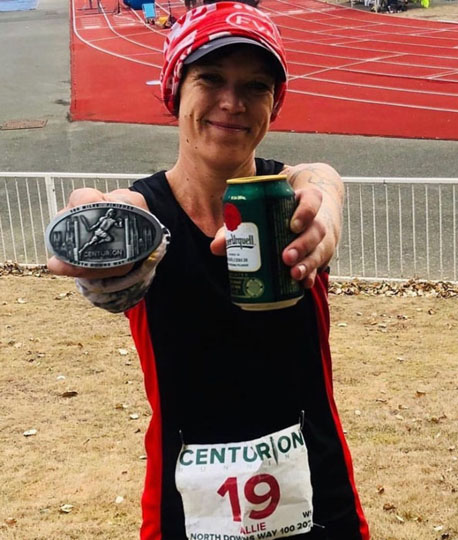
HITTING ROCK BOTTOM
I hit my rock bottom in July 2021. That was when I thought I was going to die.
I wouldn’t recommend hitting rock bottom. If any of this is resonating with you as you read it, I would suggest getting some help now. Rock bottom is a very hard place to come back from. Avoid at all costs. I had my last drink on the 13th July 2021 and that was when my adult life really started.
Running on its own was not enough to save me – and it is not enough to save you, either. Running is therapeutic, but it is not therapy, and expecting it alone to change your life is futile. Running is a part of your life, not your whole life. It is, for most of us, our leisure time and the way you use it is usually a reflection of what is going on in your head. Running will not prove you are well, or worthy, or successful. Running alone won’t stop you drinking or being depressed or unhappy.
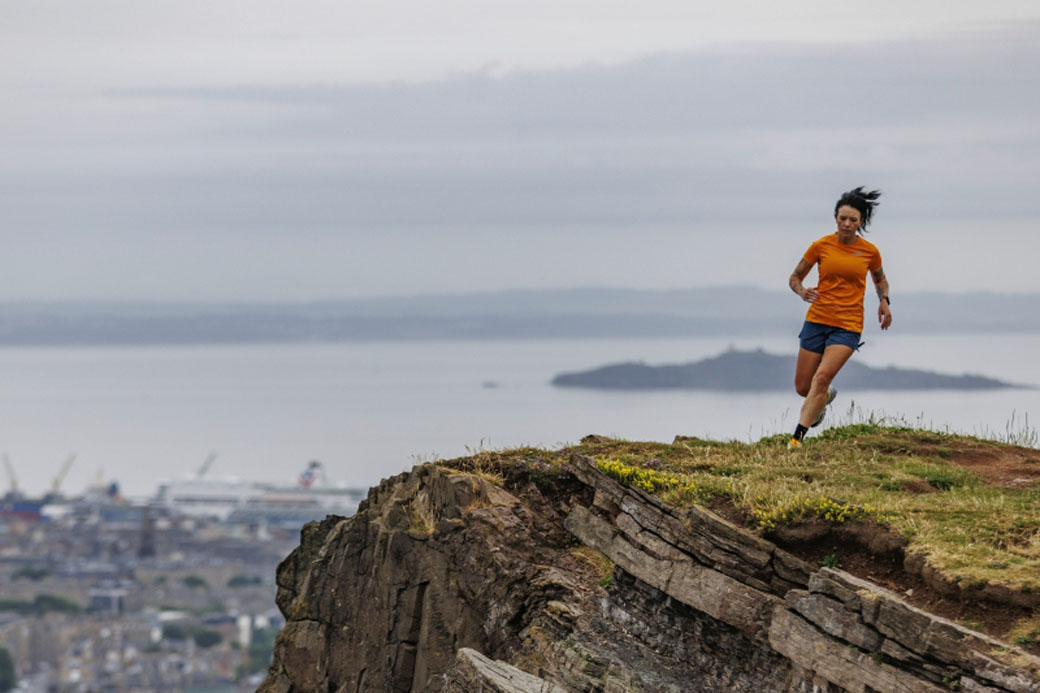
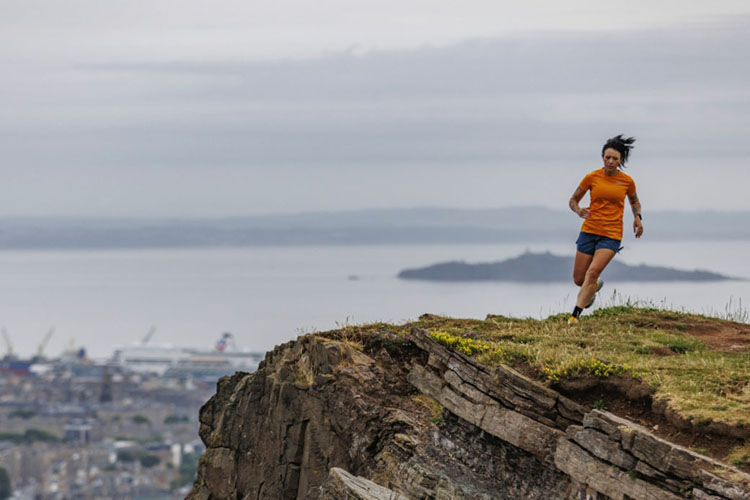
HOW RUNNING CAN HELP MANAGE ADDICTION
What running can do is give you time, energy and space to address your thoughts and start to make changes for the better in the parts of your life that may not be as helpful as you’d like. Running is an excellent support system for those changes. Running will water those seeds and help them thrive.
At the start, I used running as another way of abusing myself. I made it hard on purpose. It was like a punishment – harder, faster, further, better. I used it to prove how rubbish I was. Now it is where I am at my most calm and mindful. Now it is where I am most relaxed, happy and most me. It took a lot of work to get it to that place – and that work wasn’t all done with my trainers on – it was done with my head in books or sat in a therapists office or crying into a journal.
Running needs to work in tandem with other parts of your life in order to serve you, and I think that’s super important to remember.
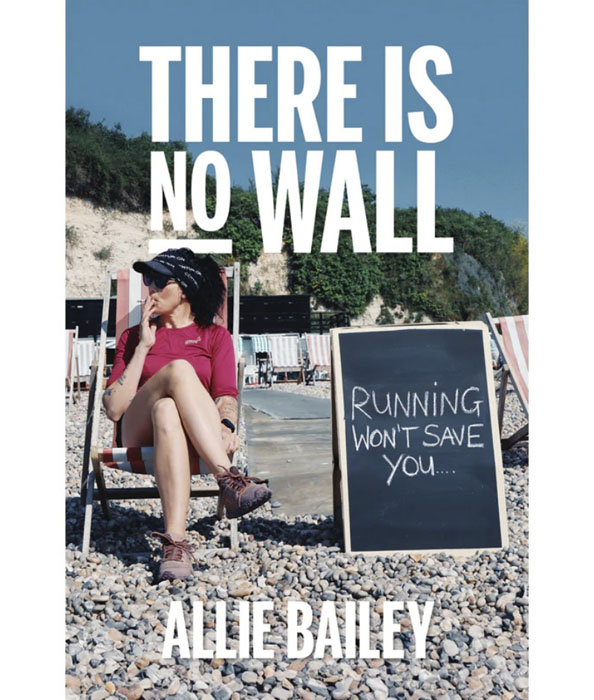
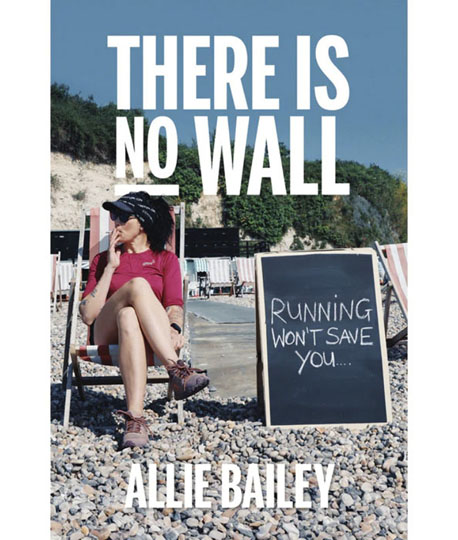
REDEFINING YOUR RELATIONSHIP WITH RUNNING
Maybe this year you don’t need to be doing more running, or going longer, harder or faster? Maybe you need to be doing less running and more thinking about why you’re running. Maybe you need to be sharing what you’ve learnt with others – taking groups out, providing inspiration to beginners. Maybe now is a good time to look at how you use it. If you’ve lost your mojo, getting more involved with the community, volunteering at races and helping others can really help remind you of why you were so magnetised to becoming a runner in the first place.
Honestly, I thought that running would save me from myself for a really long time – but it was me that had to do that. During the early stages of addiction recovery, I used those long runs and events to test my new thought processes and problem-solving abilities and I found that ultras were the perfect safe place to do that. I genuinely enjoy doing the hard stuff now. I’m not doing it to prove anything to anyone. I’m doing it out of gratitude that I can do it.
Nowadays running is my emotional support to myself rather than the thing I rely on to keep me sober and well. I keep me sober and well, running might help, but it alone is not responsible for that. Running is super important, but it is not lifesaving – I can manage without it if I need to. Running enriches my life rather than defines it and it most certainly doesn’t define my worth as a person.
Understanding it like this and not believing all the bullshit Instagram hype about running saving you or changing your life makes it so much more of a pleasurable experience. There’s less pressure and less expectation for a start. When you start to actually enjoy and be mindful of every step in those hills and on those trails, rather than using it as a measure of worth, speed or comparison, that’s when it can really start to have the greatest most positive impact on your life.
